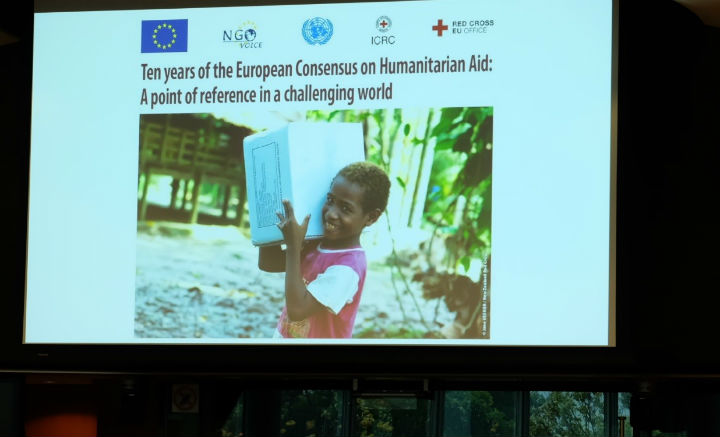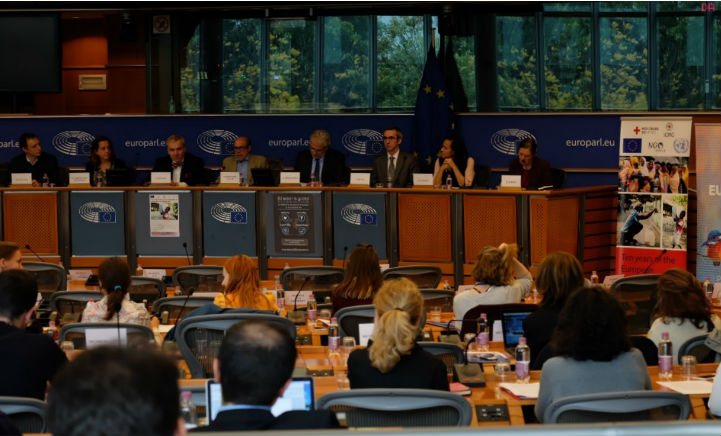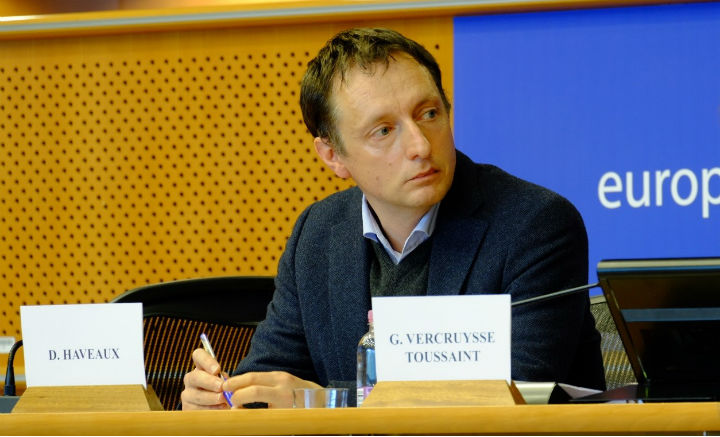Ten years of the European Consensus on Humanitarian Aid
On Wednesday 11 October, a panel discussion at the European Parliament marked ten years since the signature of the European Consensus on Humanitarian Aid. Hosted by the Parliament’s Committee on Development (DEVE), it gathered panellists from the European Commission and the Council of the European Union (EU), as well as representatives from the United Nations (UN), NGO Voice, Doctors Without Borders, and the International Red Cross and Red Crescent Movement, to discuss the continued relevance of the Consensus in light of today’s humanitarian challenges.

Signed by the EU institutions as well as EU Member States, the Consensus is the key document guiding the EU and its Member States’ approach to humanitarian aid. The EU is the only region in the world with such an agreement. Amongst others, this has led to the establishment humanitarian structures such as the Council Working Group on Humanitarian Aid and Food Aid (COHAFA), a standing rapporteur for Humanitarian Aid in the European Parliament, and a dedicated Commissioner portfolio. Central to a needs-based approach to humanitarian aid, these elements work to increase coordination and accountability, while helping to safeguard independent humanitarian aid from the EU’s internal interests and the political objectives of its external action. In his keynote speech, European Commissioner for Humanitarian Aid and Crisis Management, Christos Stylianides, underlined the importance of the Consensus in serving as a “common compass” for all actors involved in the provision of humanitarian assistance.
The importance and continued relevance of the Consensus was reiterated by the Estonian EU Presidency, when the Deputy Minister for Foreign Affairs of Estonia, Väino Reinart, remarked that the event itself was “an opportunity to commit again to the Consensus”, emphasising that “the Consensus matters as much as it did ten years ago, if not more”.

The panel discussed how the Consensus references most of the key humanitarian issues of today, from the humanitarian-development nexus to the localisation of aid. Participants highlighted examples of how the Consensus supports needs-based emergency responses in different contexts. Critically, it supports principled humanitarian action in line with the humanitarian principles of humanity, neutrality, impartiality, and independence. The need to sustain efforts to ensure compliance with these principles was also stressed.
The Consensus supports the plurality and complementarity of various humanitarian actors, each with their respective strengths. Underlining the “criticality of working together in partnership”, the Head of the UN Office for the Coordination of Humanitarian Affairs (OCHA) Liaison Office to the EU and NATO, Vincent Hubin, emphasised that “there must be coherence between global and local levels of action”.
As with the Grand Bargain commitment to localisation, the Consensus recognises that local actors have clear a comparative advantage in humanitarian responses. It encourages national and international organisations to foster partnerships with local organisations in affected communities, and supports capacity strengthening activities to enhance local disaster responses.

“Local actors can respond with critical speed because they are close to the situation”, pointed out the Director of the Red Cross EU Office, Denis Haveaux, “and they often have access that no international actor can achieve.” Mr Haveaux explained the crucial importance of incorporating an understanding of local context, politics and culture to increase the effectiveness of humanitarian action. He cited an example from the Ebola outbreak in West Africa from 2013 to 2016, where over 10,000 Red Cross volunteers engaged their communities in a respectful, culturally appropriate way to ensure safe and dignified burials and reduce further spreading of the disease.
The discussion also looked at the practicalities of strengthening the capacities of local and national humanitarian actors, who are well placed to link preparedness, response and recovery, given their continued presence in affected communities. The Consensus recognises the necessary link between humanitarian aid and development cooperation to guarantee the achievement of long-term development objectives. Panellists therefore called for investment to begin before disasters strike, and continue after the emergency phase, stressing the need for support to go beyond technical expertise by including organisational capacity development. In this vein, Director of VOICE, Kathrin Schick, advocated increased simplification of EU procedures vis-a-vis their humanitarian aid partners, for example in the management of reporting, finances, and proposals, so as to better enable the active participation actors on the ground.
Humanitarian aid “needs to work from the bottom up and the top down,” Ms Schick continued, “and in this way, the Consensus is an important and relevant document”. Signatories have a responsibility to ensure it is adhered to in practice; “there can be no compromise to this,” Commissioner Stylianides underscored.
For media inquiries, please contact Eva Oyón on: eva.oyon@redcross.eu or +32 2 235 09 22

